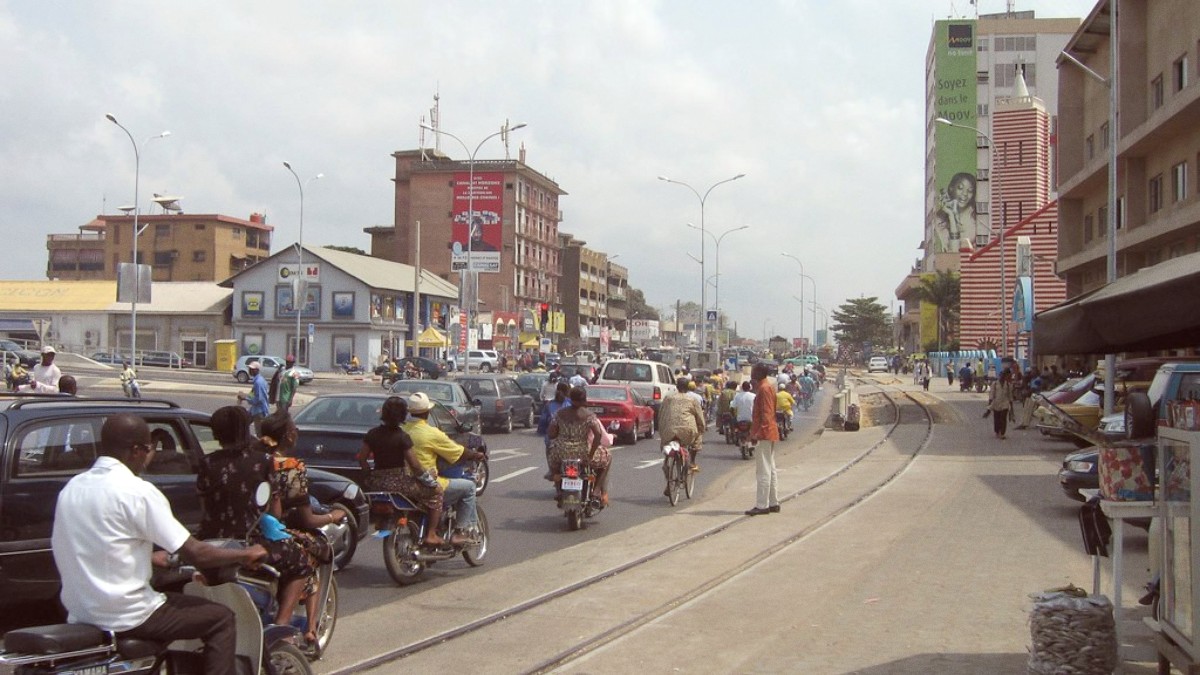
Benin
The city truly comes alive through its sounds, sights, and interactions, making every moment an opportunity for a new discovery. Travelers find a dynamic urban landscape, where every turn presents another layer of Benin's rich identity.
Cotonou's history, while relatively recent, aligns closely with colonial expansion and trade. The name "Cotonou" means "mouth of the river of death" in the Fon language, referencing an ancient burial site. Originally a small fishing village, it gained prominence in the late 19th century under French colonial rule.
The French transformed it into a major port, a gateway for regional trade. Its strategic position made it a focal point for economic activity, surpassing older cities like Porto-Novo and Abomey in commerce. The city's rapid development drew people from various ethnic groups across Benin and neighboring countries. Cotonou's past as a colonial port shapes its modern identity as a bustling commercial center, with architecture reflecting this development.
Cotonou, Benin's largest city, is a diverse population from numerous ethnic groups, including Fon, Yoruba, and Adja. Beninese people generally extend a warm welcome, known for their smiles and hospitality.
French serves as the official language, widely in use for business, education, and government. Many local languages are also spoken, with Fon and Yoruba being prominent. A few basic French phrases will significantly enhance interactions.
Expect a hot and humid equatorial climate year-round. Temperatures stay consistently warm, averaging 25-30°C (77-86°F).
The city experiences two rainy seasons and two dry seasons. The long dry season (November to March) offers the most comfortable weather for visitors.
The West African CFA franc (XOF) serves as the local currency. Cash transactions are common, especially in markets and for local transport.
Euros are readily exchangeable, and ATMs are available in urban areas.
For efficient visa processing, consider services like IVisa or VisaHQ.
The sprawling Dantokpa Market offers an unforgettable sensory experience. Fondation Zinsou showcases contemporary African art. The Artisanal Centre provides opportunities to purchase local crafts. The nearby stilt village of Ganvié on Lake Nokoué offers an unique cultural excursion.
Motorcycle taxis, called Zemidjans, are the most common way to get around the city. Shared taxis are also available. Navigation is often informal, so agreeing on fares before rides is a standard practice.
Beninese cuisine features staples like maize, yam, and cassava, served with flavorful sauces, often with grilled fish or chicken. Street food presents delicious and affordable dining options.
Cotonou might feel intense at first, but its vibrancy and authenticity quickly become its greatest charm. It presents a genuine West African urban experience, making it a compelling destination for those seeking an adventure beyond typical tourist paths.
The city experiences a hot and humid equatorial climate throughout the year, with consistent temperatures and distinct rainy and dry seasons. This predictability supports effective planning based on your activity preferences.
Most foreign nationals need a visa for entry. The e-Visa system simplifies this process, making it the recommended approach for many travelers. Proper health preparation, including vaccinations, is also a must-have for a healthy trip.
The long dry season (Mid-November to Mid-March) has less rainfall and lower humidity, ideal for outdoor activities and travel.
Most foreign nationals require a visa. The e-Visa system is the most convenient method for obtaining one.
Benin offers experiences for every budget, from very economical travel to more luxurious stays.
Cotonou's climate remains consistently warm, with average temperatures hovering between 25-30°C (77-86°F). Nighttime temperatures rarely drop below 20°C (68°F), meaning evenings stay warm and balmy. High humidity marks the atmosphere year-round, often exceeding 80%, making the heat feel more intense.
Comprehensive travel insurance is a strong recommendation for your journey to Benin.
Comprehensive travel insurance is very important for any trip to Benin. Your policy should cover emergency medical treatment and hospitalization. Medical evacuation to a country with better medical facilities, for instance in Europe, may become necessary in cases of severe medical emergency. Policy coverage for trip cancellation, interruption, or delay stemming from unforeseen circumstances adds security to travel plans.
The policy should also cover lost or stolen luggage and personal belongings. Research reputable travel insurance providers. Compare policies to confirm they explicitly cover activities planned during the trip and provide adequate coverage for West Africa.
Benin presents specific health considerations, especially regarding mosquito-borne diseases and food hygiene.
For water filtration products, consider LifeStraw. For first aid supplies, see Adventure Medical Kits. For anti-theft bags and travel security, explore Pacsafe.